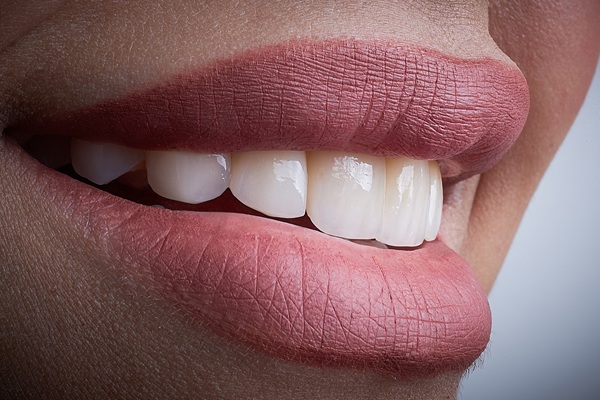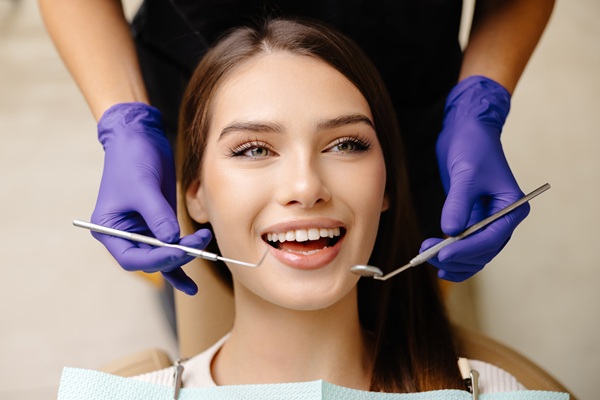Frequently Asked Questions: Dental Sleep Medicine

Dental sleep medicine can help with snoring and obstructive sleep apnea, which are two common sleep problems. Snoring is one of the primary symptoms of obstructive sleep apnea, but not everyone who snores has it. However, snoring alone can cause problems for individuals and their sleep partners by interrupting sleep. While the Continuous Positive Airway Pressure machine is an effective treatment for obstructive sleep apnea and snoring, other treatment options exist.
Dental sleep medicine
Dental sleep medicine is dentistry that treats snoring and obstructive sleep apnea. It offers patients an alternative to CPAP machines. Dentists create customized mouth appliances that patients wear during sleep. These appliances support the jaw in a position that prevents the patient's airway from collapsing during sleep. This type of continuous jaw support can prevent snoring and help relieve sleep apnea, so patients rest better.
What is a dental sleep medicine appliance?
The customized mouth appliances dentists make for patients with snoring or sleep apnea issues resemble the custom mouth guards that athletes wear while playing sports. When not in use, the appliances fit into a case so that they are easy to take along during travel.
How do dentists make dental sleep medicine appliances?
To make the mouth appliances, dentists perform a dental exam and may take X-rays. Technicians then create impressions of the patient's teeth. These impressions go to a laboratory where technicians use them to create an appliance designed to fit the patient's mouth exactly. When the dentist receives the completed appliance from the laboratory, the patient comes in for a fitting. The dentist may then make minor adjustments to the appliance and will teach the patient how to clean and care for it.
Can the appliance replace a patient's CPAP machine?
Patients who have mild or moderate sleep apnea may find they no longer need their CPAP machine during sleep once they start using their dental appliance. The portability and convenience of the appliance appeal to many patients, and they may find themselves more likely to comply with instructions for its use than with their CPAP machine.
What advantages do dental sleep medicine appliances have?
CPAP machines consist of a mask that covers the mouth and nose and tubing connecting the mask to the machine itself, which is roughly the size of a shoebox. Patients must plug their CPAP machine into an electrical outlet for it to function.
By contrast, dental sleep appliances have no mask or tubing and fit inside the mouth, with no external parts. Because of the appliance's convenience and portability, many patients are more likely to use their dental appliance than a CPAP machine. Better treatment compliance may result in better relief from snoring and sleep apnea.
Conclusion
Snoring and sleep apnea can affect a person's sleep quality and quality of life. The sleeping partners of snorers and people with sleep apnea may find their own sleep quality affected as well. Dental sleep medicine helps people address snoring and sleep apnea in a way that is less obtrusive and inconvenient than a CPAP machine and can help improve the quality of life for these patients and their partners.
Request an appointment here: https://alamedadentalaurora.com or call Alameda Dental at (303) 343-7072 for an appointment in our Aurora office.
Check out what others are saying about our services on Yelp: Sleep Medicine in Aurora, CO.
Recent Posts
Minor chips, cracks, and gaps in the smile do not have to be permanent. Dental bonding is a quick yet durable way to repair teeth with these cosmetic imperfections. With natural-looking results and minimal preparation, bonding can support oral health and restore the smile to its prior radiance.Dental bonding is a cosmetic procedure in which…
Patients often ask about TMJ treatment options when jaw pain, clicking, or headaches disrupt everyday life. The temporomandibular joint (TMJ) links the lower jaw to the skull and powers chewing, speech, and yawning. When the joint or the surrounding muscles become overworked or inflamed, symptoms can include jaw stiffness, ear fullness, limited opening, and facial…
Finding a kid-friendly dentist can transform dental care from a stressful task into a positive experience for young patients. This dental professional creates a warm, welcoming environment, making routine visits and cleanings enjoyable while teaching strong oral hygiene habits. Establishing a trusted relationship with a dental provider in a person's early life can lead to…
Gum disease treatment can restore health to the smile. A family dentist — who often provides cosmetic services in addition to general dental care — offers targeted solutions based on the severity and progression of gum disease. Early detection and prompt intervention can halt or reverse the condition. Exploring how family dentists treat gum disease…


